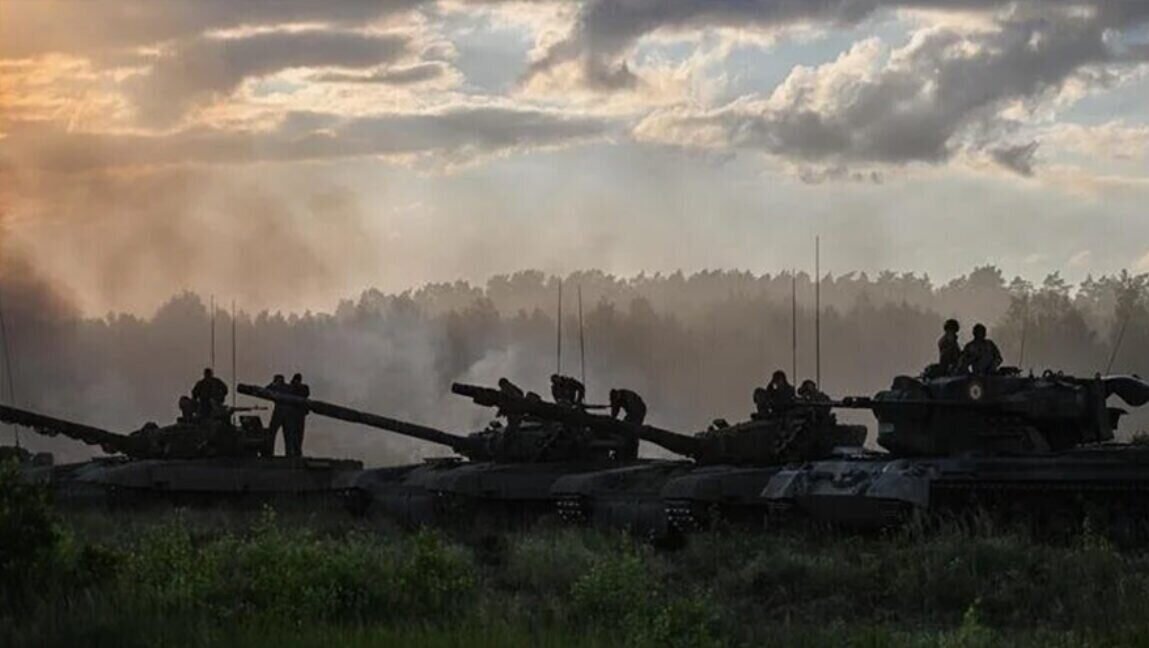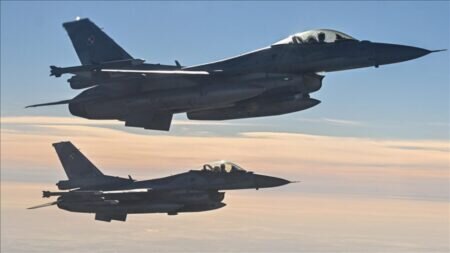Swathes of Ukrainian territory captured by Russia since beginning of this year, including major centers, as Kyiv's allies turn attention to Middle East, says editor-in-chief of the Russian National Defense magazine.
Despite Russian advance, Ukrainian army still 'fiercely resisting,' Igor Korotchenko tells Anadolu, pointing to Kyiv's new mobilization law.
Continuity of Western aid to Ukraine is a 'prerequisite to halt,' let alone defeating Russia, says expert Sine Ozkarasahin.
Since the beginning of this year, Russia has reported significant progress of the country's armed forces in Ukraine, where Moscow has been waging a "special military operation" since Feb. 24, 2022.
According to Defense Minister Sergey Shoygu, Russia has gained control of over 400 square kilometers (about 155 square miles) in 2024, including key transport and logistics hubs like the cities of Avdiivka and Marinka.
The capture of small villages has also been a routine addition to daily progress reports by the ministry, along with efforts to consolidate the positions of Russian forces on multiple fronts.
In an interview with Anadolu, Igor Korotchenko, editor-in-chief of the Russian National Defense magazine, attributed Moscow's battlefield performance to several factors, from the resolution of problems related to supply chains, to the bolstering of defensive capabilities and ramped up weapons production.
Russia has also utilized high-precision weapons to target critical infrastructure in Ukraine, undermining Kyiv's capabilities behind the lines, while rising numbers of voluntary contractors have boosted morale for Russian troops, as opposed to the other side's primarily conscripted army, he said.
Despite the Russian advance, Ukraine's army is still "fiercely resisting," Korotchenko underlined, pointing out that Kyiv will soon be able to better concentrate its resources and "throw them to the front" under a recently passed mobilization law.
"But for now, we are recording that the initiative on the battlefield is in the hands of Russia," he added.
Ukraine ally US' attention turned to Middle East
On external support, Korotchenko noted the decline in US assistance to Ukraine, particularly in acquiring essential defense systems and equipment.
He highlighted the shift in US focus to the Middle East, where it seeks to avert a major regional war after a retaliatory strike by Iran against Israel over the weekend.
"Further escalation will negatively affect the position of the US, it will have to re-orient itself from Ukraine to support Israel. Therefore, the US is now doing everything to keep Israel from retaliating against Iran," he said.
Korotchenko called Iran a "beneficiary of the situation," saying it managed to attack Israel without any consequences.
"This was the first Iranian direct strike — not through any proxy forces, but a direct strike — from Iran's territory on Israeli territory. Israel has now found itself in a rather stupid situation, if Israel responds, a big war may begin, and if Israel remains silent, it will be a humiliation of the Israeli state," he said.
Russia's sights on Kharkiv, Mykolaiv, Odesa
Despite this decline in assistance to Ukraine, Moscow still needs to capture several strategic regions that serve as launching grounds for cross-border attacks by Ukraine, according to Viktor Litovkin, a Russian military expert.
These include Kharkiv, Mykolaiv, and Odesa in Ukraine, Litovkin elaborated, adding: "Strikes are being carried out from the Kharkiv region on Russian territories, the Bryansk, Belgorod, Voronezh, Kursk regions."
"In order to stop all these attacks, it is necessary to move the Ukrainian combat system from the Kharkiv region by at least 300 kilometers (186 miles)," he said, explaining that this was the range of US-made HIMARS rockets that Ukraine has received from its allies.
"It is also necessary to liberate the Mykolaiv, Odesa regions, from which the attacks on Crimea, the Crimean Bridge, and the ships of the Black Sea fleet are coming," he said.
The expert argued about the connection between Russia's advancement on the battlefield and the situation in the Gaza Strip, pointing out that disputes over further assistance to Ukraine started in the US long before the Oct. 7 Hamas attack on Israel.
"No one except the US is helping Israel to fight Hamas, and 50 countries led by the US are helping Ukraine. Russia in Ukraine is at war with the entire West, which is trying to weaken and ruin Russia," he said.
Western aid remains critical for Ukraine
If Ukraine is to halt, or let alone defeat Russia, then the continuation of Western aid is a "prerequisite," Sine Ozkarasahin, an Istanbul-based security and defense analyst, told Anadolu.
Expressing that Ukraine still has shortages in ammunition, such as in 155mm artillery shells, Ozkarasahin said initiatives from European countries such as Estonia and the Czech Republic can make a big difference, as well as in air defense and in fighter jets.
"However, the timing of these deliveries is also just as critical," she said.
Authorities in Ukraine, including President Volodymyr Zelenskyy, have blamed the lack of swiftness in military aid to Kyiv in the loss of Ukrainian lives amid recent Russian airstrikes.
Ozkarasahin went on to say that one potential benefit of the delay in military aid to Kyiv has been Ukraine's use of the situation to bolster its own defense technological industrial base and to come up with "innovative solutions" to bolster its strike package.
"One particular example is the A-22 Foxbat, a repurposed sport plane that struck the Russian–Iranian joint drone production plant in Russia’s Tatarstan region," she added.
Meanwhile, in light of the recent Iranian-Israeli tensions, Ukrainian journalist Roman Popkov told Anadolu that the impact of these tensions on the situation in Ukraine depends on whether it turns into a full-fledged war.
Expressing that the tensions between the two countries has not yet had a significant impact on the level of Western support for Kyiv, Popkov said such a conflict will negatively affect both Russia and Ukraine's military arsenal.
Source: AA


